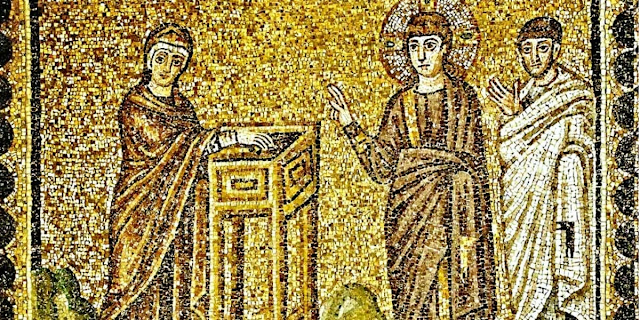Gospel: Luke 16: 19-31
In the entire Gospels, Jesus only speaks descriptively of hell in two places. In the first instance of Matthew 25 it is the place of torment reserved for those who fail to show mercy and neglect for the poor. The second instance is today's Gospel portion where the rich man is sent like a goat to the place of torment for failing to help the poor Lazarus. The judgment of the nations is personified and personalized in this story of the rich man and Lazarus.
It is worth noting that Jesus makes no distinction between worthy and unworthy poor people. He creates no criteria that would give us any reason to deny help to someone poor and in need. Jesus simply helped anyone he came across with a need; he feed everyone who was hungry. For before God everyone is poor and in need, everyone is in need and deserving of mercy.
So, while we argue about who is worthy and not to receive communion or even a mere blessing, Lazarus goes hungry, neglected and ignored while we fine-tune our worthiness meters and curry favor with the rich and powerful. May Lazarus not die because of our neglect. May we turn away from the path of the goats and seek the road of mercy and care for the poor and marginalized.





























